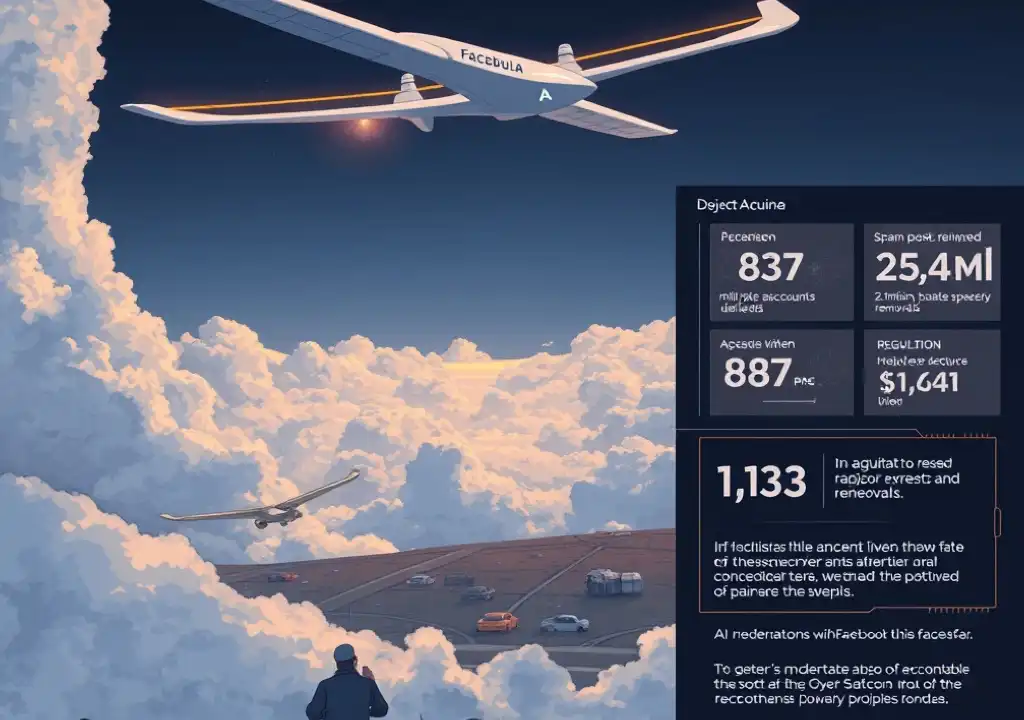Social Media Giant Deletes 583 Million Fake Accounts in Three Months
Facebook has officially ended its ambitious Project Aquila, which aimed to provide internet access to remote regions via solar-powered drones. The initiative, launched in 2014, focused on developing high-altitude platform station (HAPS) technology to beam down high-speed wireless internet from the sky.
The company stated that it is halting its drone development efforts as other organizations have made significant strides in similar technologies. Instead, Facebook plans to pivot towards collaborating with aerospace firms and tech partners to advance HAPS-related solutions.
“Going forward, we’ll continue partnering with companies like Airbus to enhance HAPS connectivity and work on supporting technologies such as flight control systems and high-density batteries,” Facebook announced on its website.
Originally, Project Aquila sought to connect approximately four billion people lacking internet access by flying solar-powered drones over rural or underdeveloped areas. These drones were designed to remain airborne for long periods while transmitting internet signals to the ground.
Although the programme set records for air-to-ground communications, it also faced challenges. One of the prototype drones suffered serious damage during a landing attempt, highlighting the technical difficulties involved.
Facebook says it remains committed to improving the policy framework for HAPS and will continue working with governments and regulatory bodies to develop better standards for this emerging technology.
Mass Removal of Fake Content
Coinciding with the cancellation of Project Aquila, Facebook disclosed that it had deleted more than 583 million fake accounts in just the first quarter of 2018. The platform also removed 837 million spam posts and 2.5 million pieces of hate speech over the same period.
“There is no space on Facebook for this kind of harmful activity,” the company wrote in a blog post. “We’re making significant investments in both human resources and advanced technology to safeguard our platform.”
Facebook has been under increasing scrutiny for its role in spreading misinformation and harmful content. The US government has accused Russian operatives of manipulating Facebook to influence the 2016 presidential election.
Furthermore, the company faced criticism for failing to curb the spread of false news and incitements to violence during the Rohingya crisis in Myanmar. In response to such events, Facebook CEO Mark Zuckerberg has pledged to intensify efforts to combat fake accounts, hate speech, and malicious advertising campaigns.
Despite ending drone development, Facebook continues to push its broader goal of expanding internet connectivity and ensuring safer, more trustworthy use of its platform worldwide.

